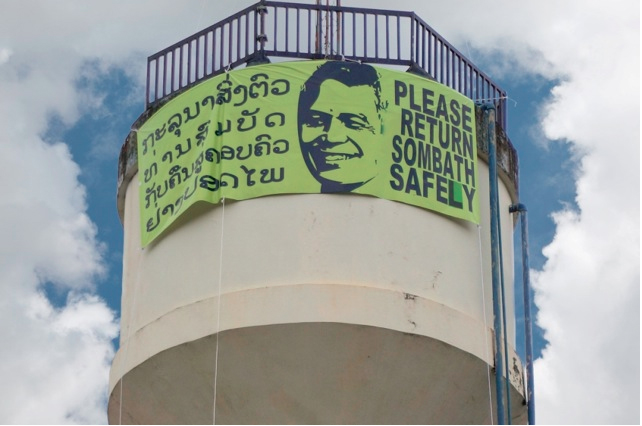The Diplomat: 15 December 2022 By Sebastian Strangio
Despite a decade of calls from U.N. officials and human rights groups, there is still no word as to the ultimate fate of Lao civil society leader Sombath Somphone.

Today marks the tenth anniversary of the disappearance of the Lao civil society leader Sombath Somphone. As in most of the past ten years, the occasion has been marked by commemorations and calls for answers about his disappearance – and an emanation of silence from the government in Vientiane.
On the evening of December 15, 2021, Sombath, the leader of Laos’ first and most prominent civil society organization, was stopped at a checkpoint on the outskirts of the capital Vientiane. The 60-year-old was then transferred to another vehicle, according to a grainy police surveillance video that emerged later, and was never seen again. After Sombath’s disappearance, the United States and other Western governments called for an investigation. The Lao government promised to do so but has never done much toward fulfilling it.
To mark the 10th anniversary of Sombath’s disappearance, 66 civil society organizations issued a statement to “renew calls on the Lao government to determine his fate and whereabouts and deliver justice, truth, and reparation to his family.” Continue reading “‘Where is Sombath?’: After 10 Years, the Question Remains Hanging”









 Ahead of the 10-year anniversary of the enforced disappearance of Lao civil society leader Sombath Somphone, we, the undersigned civil society organizations and individuals, renew calls on the Lao government to determine his fate and whereabouts and deliver justice, truth, and reparation to his family. We deplore the Lao authorities’ repeated failure to act on their human rights obligations to thoroughly investigate Sombath’s disappearance and provide adequate, effective, and prompt reparation for Sombath and his family over the past decade.
Ahead of the 10-year anniversary of the enforced disappearance of Lao civil society leader Sombath Somphone, we, the undersigned civil society organizations and individuals, renew calls on the Lao government to determine his fate and whereabouts and deliver justice, truth, and reparation to his family. We deplore the Lao authorities’ repeated failure to act on their human rights obligations to thoroughly investigate Sombath’s disappearance and provide adequate, effective, and prompt reparation for Sombath and his family over the past decade.
 In conjunction with their call, the two organizations
In conjunction with their call, the two organizations 